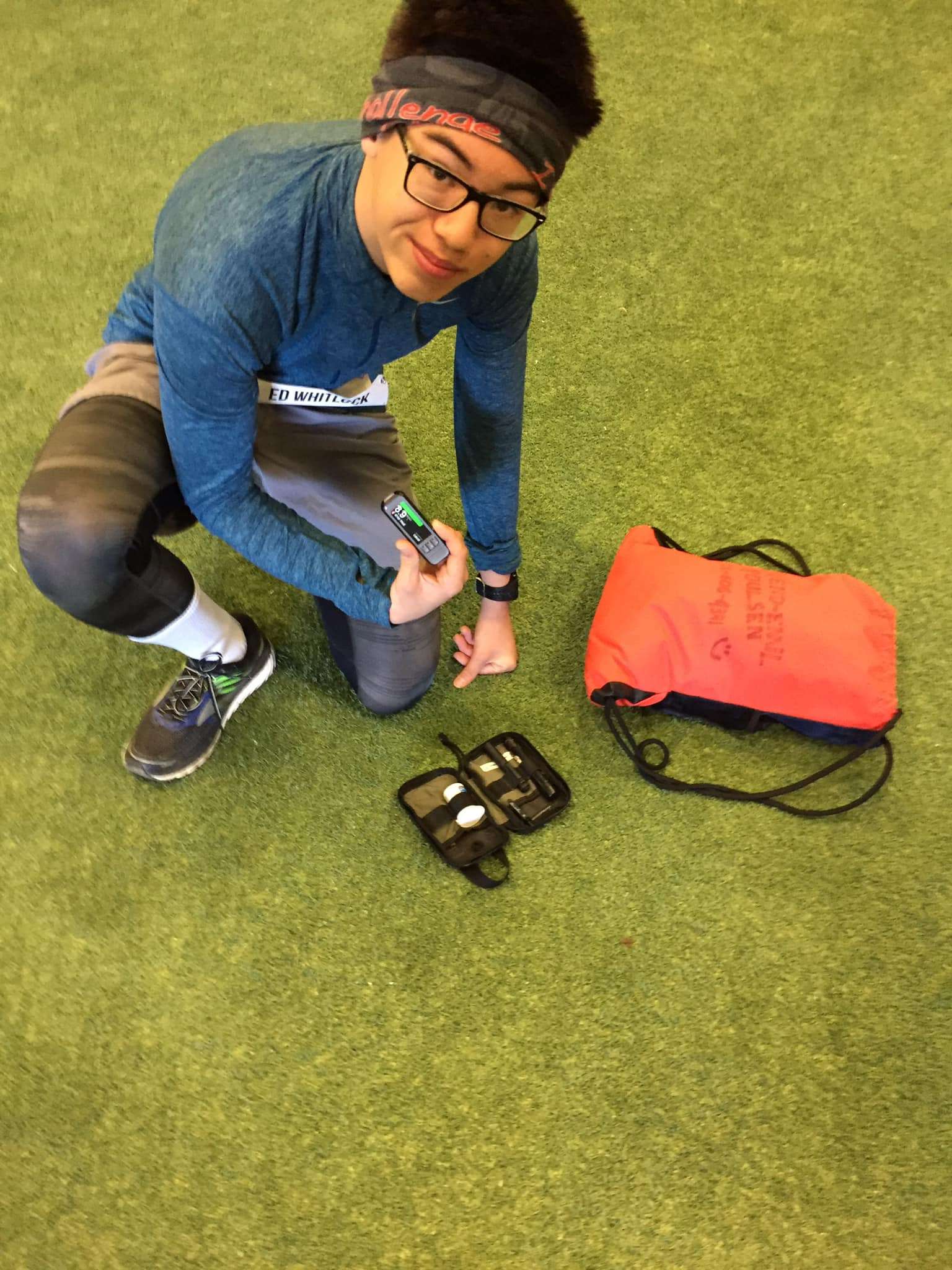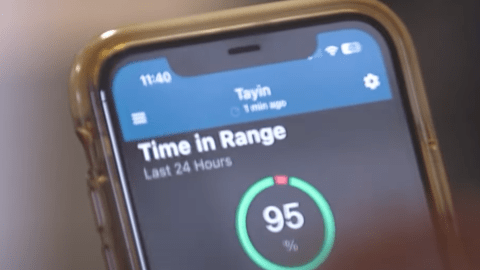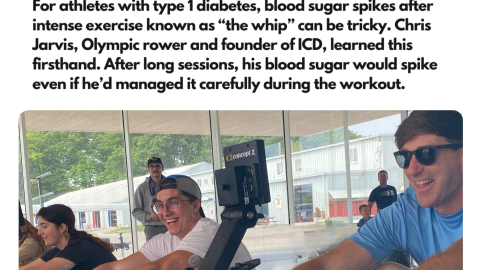“Decision fatigue helps explain why ordinarily sensible people get angry at colleagues and families, splurge on clothes, buy junk food at the supermarket and can’t resist the dealer’s offer to rustproof their new car. No matter how rational and high-minded you try to be, you can’t make decision after decision without paying a biological price. It’s different from ordinary physical fatigue – you’re not consciously aware of being tired – but you’re low on mental energy.” – John Tierney
Simply put, every decision you make uses up mental energy and when it comes to Diabetes management there is a lot to think about. As the quote from the book Willpower suggests decision fatigue can have a huge impact on your choices and thereby your health. With the constant decision-making, it’s no wonder that Diabetes Burnout is so common. Burnout in general can leave people feeling exhausted, empty, and unable to cope with the demands of life.
The term “burnout” is relatively new, first used in 1974 by Herbert Freudenberger, in his book, Burnout: The High Cost of High Achievement. He originally defined burnout as, “the extinction of motivation or incentive, especially where one’s devotion to a cause or relationship fails to produce the desired results.” Sound like Diabetes? One of the most frustrating aspects of Diabetes management may in fact be the constant hardworking without a consistent proportional reward.
Burnout is not a specific diagnosis there is a lot of overlap with other stress and the state of your mental health. Having said this it’s very real and affects individuals living with type one massively!How do you know if you’re experiencing Burnout? While burnout may affect each individual a little differently some signs to look for may include
• the desire to distance oneself
• feelings of emotional exhaustion, being drained/feeling unable to cope.
• chronic stress of any kind can manifest in physical symptoms including G.I distress, more or less appetite than usual, tiredness regardless of the amount of sleep you may be getting, headaches etc.
• being disproportionally frustrated, tired, or upset by tasks or scenarios that would typically not be overwhelming.
So, you’ve identified burnout. Now what?
Burnout has been primarily studied and talked about in the context of career. While there is a lot of overlap perhaps the biggest challenge in dealing with Diabetes burnout is…unlike other areas of your life there isn’t really the option to completely take a vacation or step away entirely. Don’t lose heart, just because there may be less latitude is certain regards less does not mean zero. You do have options. While some strategies on this list might be incredibly helpful for one person you may have to experiment and be willing to get curious about what specific triggers are for you personally. So, what can I do? Here are a few things you could try.
1.Assess Your Overall Mental Health As I’ve already mentioned burnout is essentially a state of chronic stress. Mental health exists on a continuum and manifests in our behaviours, how we feel physically, emotionally and how we think, these things aren’t fixed, this is good news especially if you’re not in the best place right now. Read that again, things can and will change and you have some agency. The key here is to look at overall patterns. How is your mood? Are you generally happy? What areas of your life bring you the most satisfaction and which areas are most challenging? When we’re generally not feeling great with our mental health diabetes burnout tends to hit the hardest. Being aware of where you’re at with your mental health overall is a great first step. Do you tend towards anxious thoughts? What are some strategies you could implement when you’re feeling anxious? Talk to a professional if you’re able. Set aside daily time to assess how you’re feeling and why. Feelings aren’t objective truth but they are great indicator lights and can help you find the best strategies to address your specific needs. Don’t judge yourself too harshly, it’s information you can build on.
2. Get support– Don’t underestimate the value of talking to somebody.
Having good support in your life is a valuable buffer for all kinds of psychological stress, including burnout. There is incredible value in feeling seen and heard. It’s also a great way to really dig in and discuss what is most stressful about your diabetes management. Not only is there tremendous value in identifying areas to work on and possible solutions, but there’s also massive value in saying how you feel.
Who do you have in your life that you can connect with about these challenges? Hopefully a variety of people! Friends, family, my friends from ICD are my primary go-to place for advice insight and sometimes just venting. It’s super beneficial to have people in your life who intimately know what it’s like to go through these difficult moments. If you don’t have a community there are a lot of good groups on social media or typically pre-pandemic days there are groups and events running out of your clinic so feel free to reach out and ask them. I Challenge Diabetes is a fantastic resource and very intentional about trying to foster the building of meaningful support systems. If you don’t feel like you have people to talk diabetes stress with please know that you are not alone. Email me, message me, I promise I will listen.
You may even have people in your life who could be a source of support that you’re not currently using. Many people keep Diabetes struggles from their friends or partners for fear of not wanting to burden them, if that’s the case for you I would suggest opening up. Your friends and family care about you and they want to be there to do life with you. People are meant to share our happiness and also our burdens. We are not designed to do life alone.
3. Deep Breaths This tip was always my least favourite tip ever until I started putting it to practice. When people would tell me to just breathe, my automatic desire was always to reply…BUT I AM. My chest is rising and falling, there are no signs of respiratory distress present…I am obviously breathing! How else could I be reading this?!
When a person is under stress their breathing pattern changes. Typically, an anxious person takes small, shallow breaths, using their shoulders rather than their diaphragm to move air in and out of the lungs. The autonomic nervous system has 2 major branches the sympathetic system (fight or flight) and the parasympathetic system (rest and digest). Breathing deeply, with a slow and steady inhalation to exhalation ratio, signals our parasympathetic nervous system to calm the body down, also stimulates the vagus nerve which plays a role in many things including mood, immune response, digestion and heart rate. When the vagus nerve is stimulated, heart rate slows and becomes regular, blood pressure decreases, muscles relax and when the vagus nerve informs the brain of these changes, it triggers a neuro-chemical response. As much as it sounds a little woo woo we can’t ignore the fact that there is a physiological change happening here. Try it yourself. It’s free, it’s fast and you can do it anywhere.
4. Consistency over Flash, Set Small Goals Like embarrassingly small. I want you to accomplish your wildest edge of possible dreams, I do. I want you to feel so fulfilled and excited and alive when you think about your goals. But I’m gonna be honest. When you’re feeling burnt out, that may not be the time to tackle your personal Everest. When we’re overwhelmed the best goals are small routines you can easily implement to remove some of the cognitive burden. This may be a good time to switch to a sensor if you have the financial means. This might be the time to commit to planking for 20secs a day. 20 seconds of time is not a lot of time. Everybody has 20seconds for their health. Pick a small thing that you can do and focus on consistency. Simplify your life where you can, delegate tasks, keep things simple. Seriously allow yourself you get rid of the schedule clutter and maybe even the actual clutter. Try to simplify anything you can.
5. Get Curious There are many metrics out there to measure your health, they are tools, they are useful and have a place but they are not the whole picture. Repeat after me. You are not defined by the numbers! The goal is for you to be your healthiest self, sometimes in the bigger picture it may be worth sacrificing a 5.5 now and then for the sake of your mental health. I want you all to have a healthy A1C, I hope you are avoiding those crazy highs and lows, mostly because I know how awful they feel, but it is not a judgement. Nor should you be judging yourself harshly if your numbers aren’t where you might like them to be. Instead, get curious, when does this happen? Please do not beat yourself up! Please don’t give up. It is a tough thing to manage, you are not failing, and it is not your fault. If you had the choice I’m sure you’d ideally choose to have perfect blood sugars all the time. Instead of beating yourself up celebrate small successes and get curious about where you can get started.
6. Don’t look for comfort in the wrong places -When you’re exhausted and overwhelmed it can be easy to slip into whatever is comfortable. Streamlining things to not waste mental energy is of huge benefit when you’re experiencing burnout but you have to be careful with this one. When we’re not feeling great we probably don’t feel like spending mental energy being intentional with our meals, exercise and good rest. When you’re tired it may be easy to just turn on some Netflix and unwind. Nothing wrong with a movie night per se but take stock, How do you really feel after a night of Netflix and junk food? Do you really feel renewed? Physical activity can have immediate and long-term health benefits. You’ll probably be better off both in the moment AND long-term if you regularly move, go for a walk, put on a fun song and dance, do 10 squats or 5 pushups. Food impacts how you feel too. What sort of meals leave you feeling alive, vibrant and energetic? Pay attention to these things and set yourself up for success. If leaving a yoga mat unrolled motivates you to move do that. Fill your fridge and cupboard with things that make you feel good. Open a tab and put an exercise video from YouTube on so all you have to do is click and go. Make it easy for yourself. The goal is renewal, notice what truly makes you feel vibrant and ready to take on the daily challenges of life.
Hopefully some of this was helpful to read. Regardless of where you’re at right now I want to remind you that nobody is perfect. Give yourself credit for everything you’re doing right, and be kind to yourself when you struggle. Keep doing the next right thing. I’m proud of you.
Resources
Talk to your healthcare team about some resources that might be a good fit for you. Below you’ll find a few that may be helpful if you’re located in Canada or the US.
-https://www.ontario.ca/page/find-mental-health-support
-https://www.camh.ca/en/health-info/mental-health-and-covid-19/coping-with-stress-and-anxiety
-https://brittneyamoses.com/how-to-practice-emotional-boundaries-to-stay-true-to-yourself/ (This link includes 10% off for BetterHelp and Faithful Help online counselling, it’s therapy via an app which can involve phone, text and video appointments)
-https://www.hasuecounselling.ca/ (online counselling at a discounted rate)
Elizabeth Harvey has been an ICD participant, volunteer, staff member, fundraiser and advocate. A plant-powered climber and runner, you can find her posts about health, Diabetes and outdoor adventuring on her instagram @elizabeth_harvey_
Our community blog is written by a diverse group of ICD participants and supporters. We are grateful to be able to share the various perspectives of our community with you. These are opinions, not medical advice, and may or may not be right for you!








